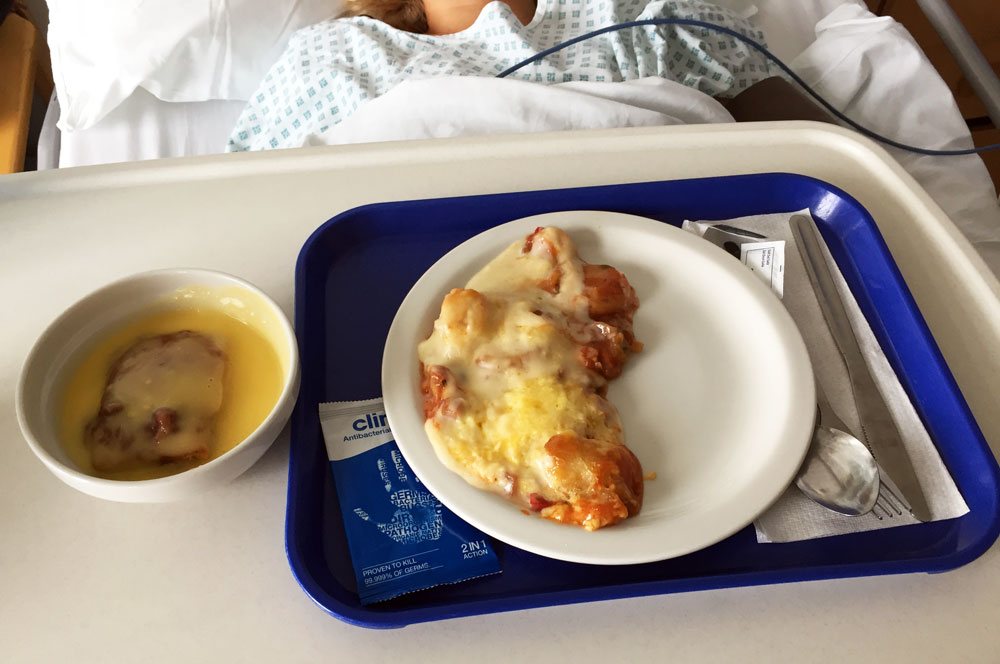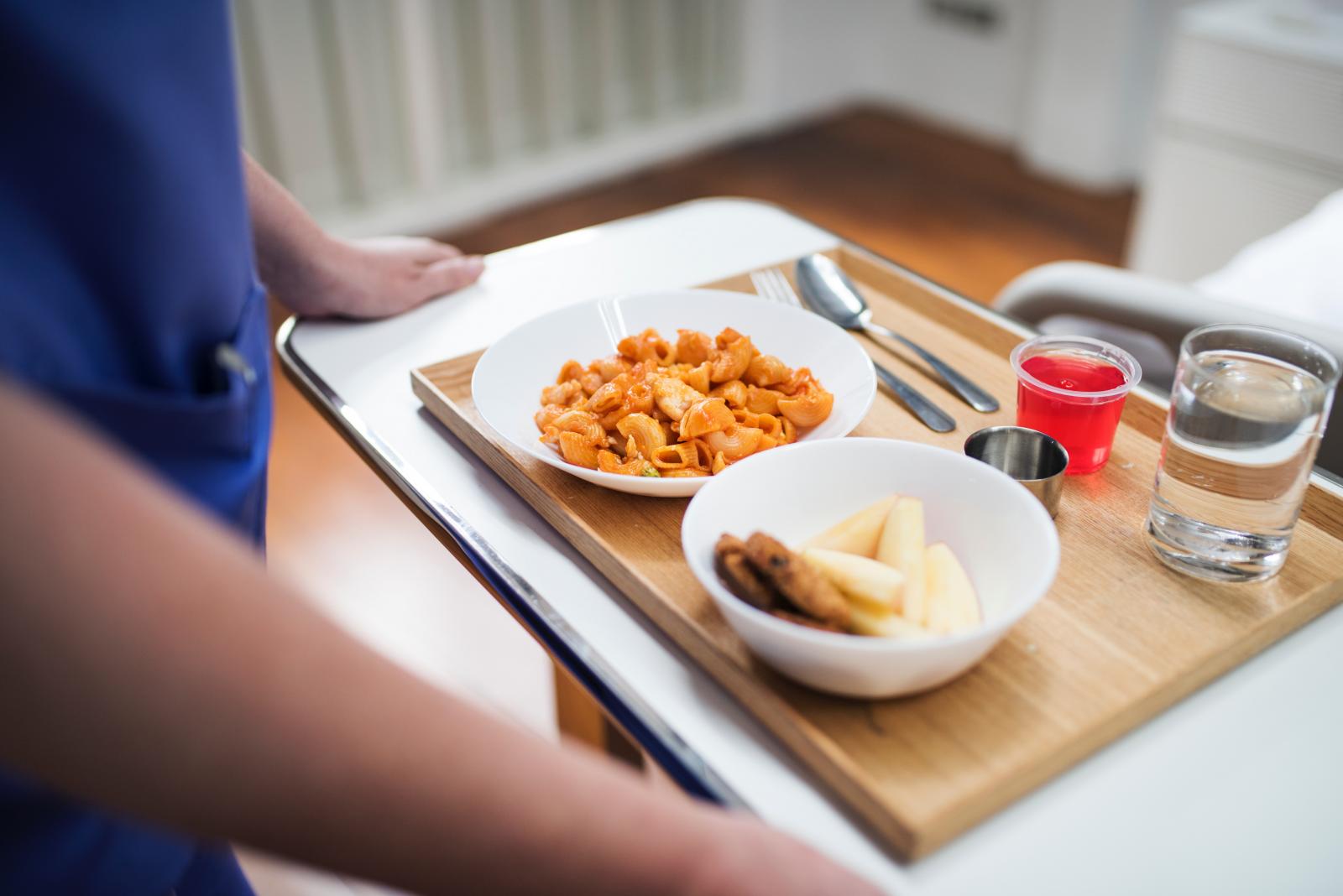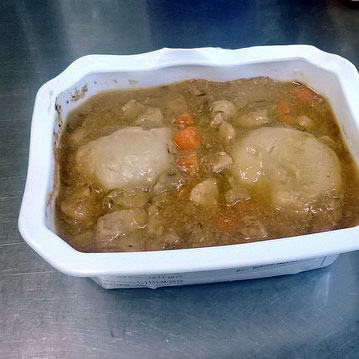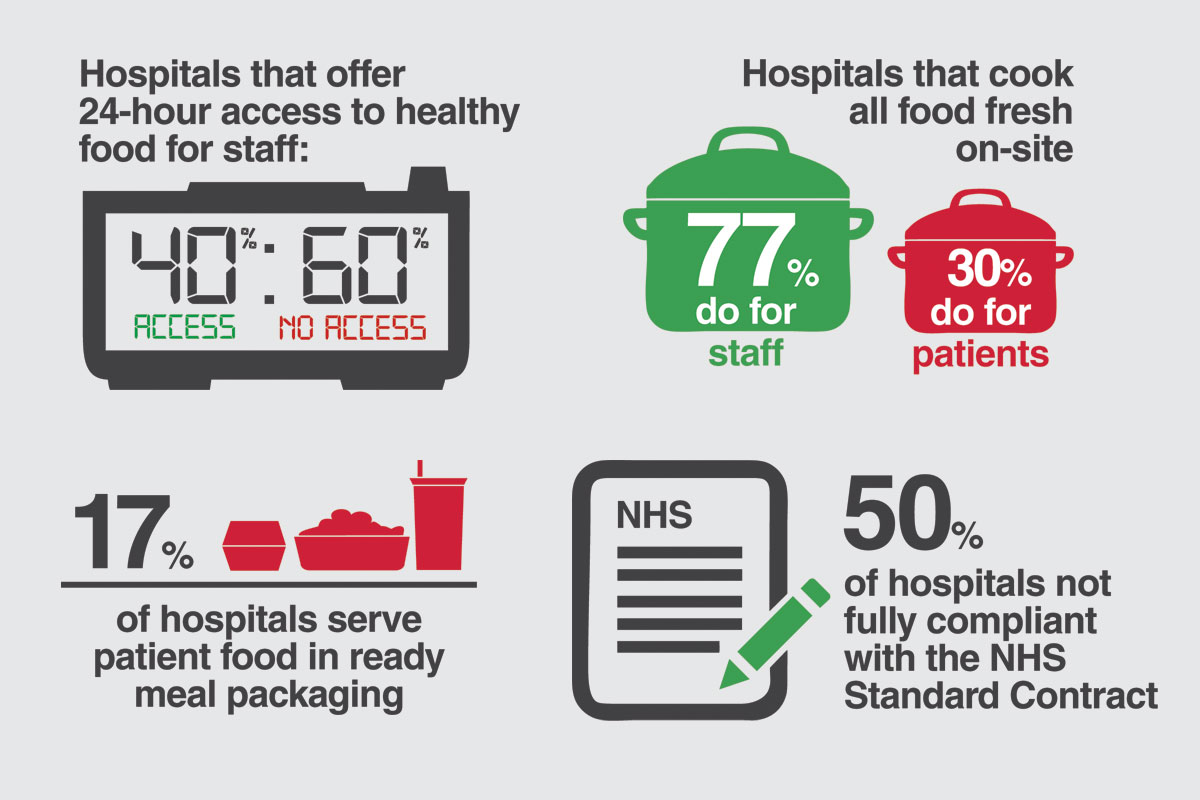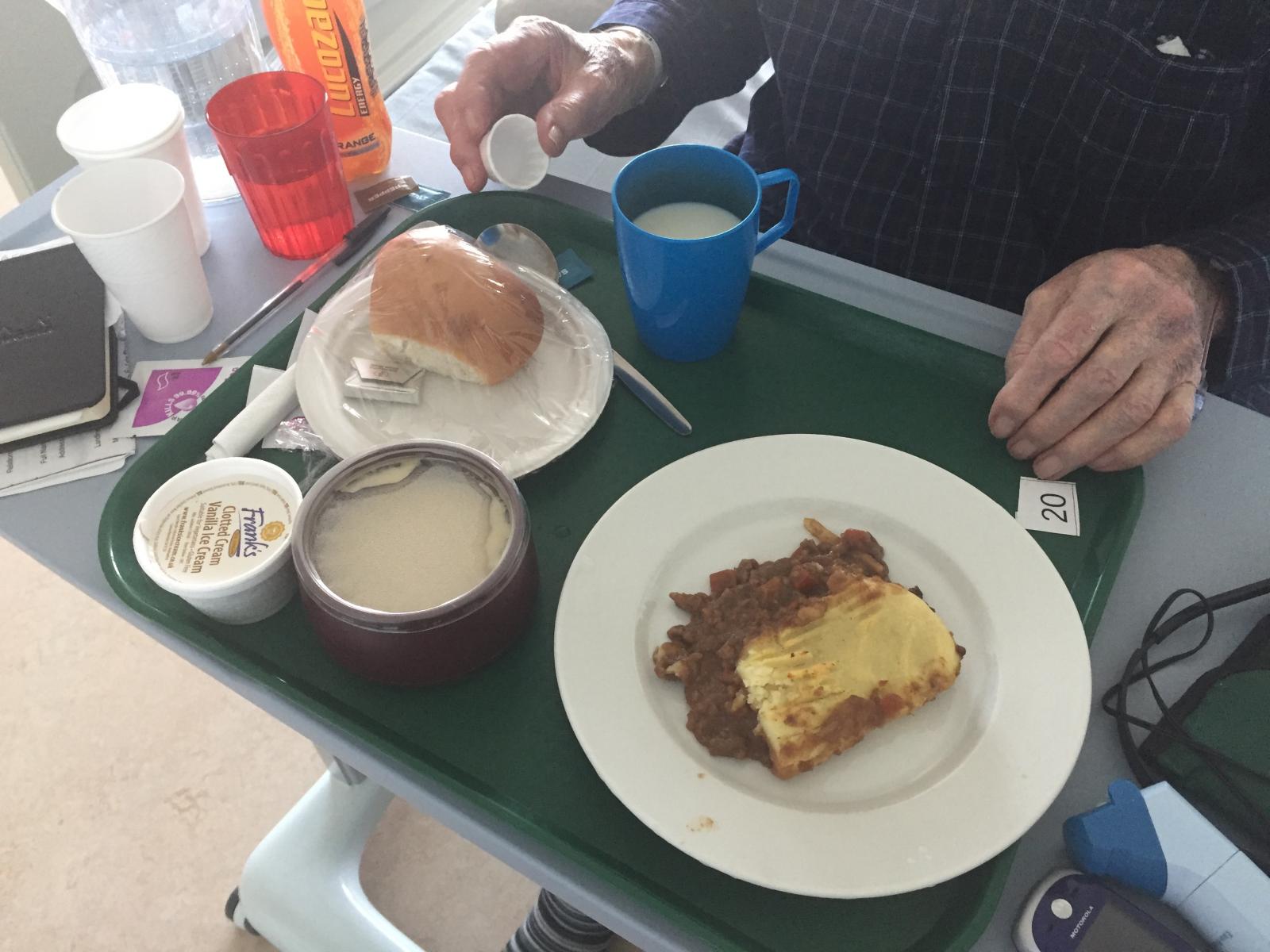Jeremy Hunt tells hospitals they must serve up better and healthier food
Hospitals will be forced to ensure patients receive better quality and healthy food in a crackdown by ministers on what campaigners claim is one of the NHS's longest-running failings.
Under a demanding set of mandatory standards, hospitals will – among other measures – be required to offer fresh fruit around the clock and reduce salt in meals, or risk being fined or losing vital NHS contracts.
Jeremy Hunt, the health secretary, is aiming to end the inadequacy of much hospital food, after a flurry of government and NHS initiatives since 2001 left the quality of meals still stubbornly poor in many places.
The standards will also give patients the right to a choice of meal and to ask to receive food in between set mealtimes.
The poor quality of much hospital food was set out in a detailed report from a standards panel Hunt set up to investigate the problem, chaired by Dianne Jeffrey, chairwoman of Age UK. "Being in hospital is often a very worrying experience and it can be made even worse when the food is unfamiliar and unappetising and you have no control over what and when you eat and drink," she said. "While hospitals are not five-star restaurants, it's important that food and drink is tasty, nutritious and thoughtfully presented so that people can eat as well as possible."
Hunt is introducing five new standards, which he says will be legally-binding on all providers of NHS care, including private operators such as Care UK. They will cover any provider who serves food to patients – acute and specialist hospitals but also mental health units and community service providers.
The standards will also stipulate that every patient entering hospital should be screened for malnutrition and be given a personalised food plan and that any patient who needs help from staff to eat or drink should receive it.
Hospitals that do not implement all the required changes will be in breach of their contracts with the GP-led NHS local clinical commissioning groups (CCGs) which pay them to treat patients.
In addition, from Friday every hospital in England will be ranked, on the NHS Choices website, for seven different aspects of their approach to food. These aspects include the quality and choice of food, choice of breakfast, availability of fresh fruit and ability to eat between meals.
That website will also detail how much each hospital spends in total per day, per patient on food and drink, though that includes the cost of equipment and staff, not just the food itself. The amounts involved currently range from as little as £3.68 to as much as £29.72 per day.
NHS England will include the requirements in the next NHS standard contract, currently being drawn up. The NHS had to "set a clear example in providing healthier food for our patients, visitors and hardworking staff," said Simon Stevens, NHS England's chief executive.
Hunt said that while many hospitals were already offering excellent food, "we want to know that all patients have nourishing and appetising food to help them get well faster and stay healthy".
But Alex Jackson, coordinator of the Campaign for Better Hospital Food, said the new clauses in contracts between hospitals and CCGs would prove "woefully inadequate" and not legally binding. "Jeremy Hunt's announcement that he will introduce 'legally binding' standards for hospital food appears to fulfil what we've always strived for, yet we're left feeling he has pulled the wool over our eyes," said Jackson, who quit Jeffrey's panel in April.
Dr Aseem Malhotra, a cardiologist and obesity campaigner, endorsed Jackson's view that only primary legislation, like that introduced by Tony Blair's administration in 2006 to improve the quality of school food, would guarantee the "scandal of hospital food" was finally ended.
"The quality of food that continues to be served to most patients in most hospitals is appalling: unpalatable, of poor nutritional quality and often heavily processed, while portion sizes can be too small to be adequate," he said. "Good nutrition is essential to a patient's recovery from illness and an operation, and there's good evidence that poor nutrition in hospitals is a risk factor for the patient having to be readmitted within 30 days of discharge because their dietary needs have been neglected during their initial stay."
Guardian
29 August 2014
Published Friday 29 August 2014
Better Hospital Food: The campaign represents a coalition of organisations calling on the Westminster government to introduce mandatory nutritional, environmental and ethical standards for food served to patients in NHS hospitals in England.
